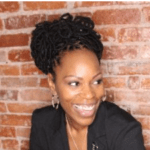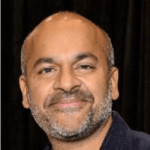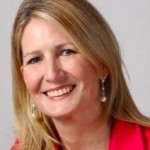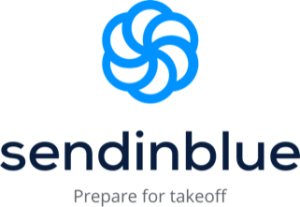
Amy Drader: Asking For, Receiving & Giving Feedback
 The mere thought of getting or giving feedback makes many people anxious. Yet normalizing feedback as a safe, productive, routine exercise will improve your team’s performance. Amy Drader from Growth Partners Consulting, reveals how to get to that higher state. (This is part of Nonprofit Radio’s coverage of 22NTC, the 2022 Nonprofit Technology Conference, hosted by NTEN.)
The mere thought of getting or giving feedback makes many people anxious. Yet normalizing feedback as a safe, productive, routine exercise will improve your team’s performance. Amy Drader from Growth Partners Consulting, reveals how to get to that higher state. (This is part of Nonprofit Radio’s coverage of 22NTC, the 2022 Nonprofit Technology Conference, hosted by NTEN.)
Listen to the podcast
Podcast: Play in new window | Download
Get Nonprofit Radio insider alerts!
I love our sponsor!
![]() Turn Two Communications: PR and content for nonprofits. Your story is our mission.
Turn Two Communications: PR and content for nonprofits. Your story is our mission.
We’re the #1 Podcast for Nonprofits, With 13,000+ Weekly Listeners
Board relations. Fundraising. Volunteer management. Prospect research. Legal compliance. Accounting. Finance. Investments. Donor relations. Public relations. Marketing. Technology. Social media.
Every nonprofit struggles with these issues. Big nonprofits hire experts. The other 95% listen to Tony Martignetti Nonprofit Radio. Trusted experts and leading thinkers join me each week to tackle the tough issues. If you have big dreams but a small budget, you have a home at Tony Martignetti Nonprofit Radio.
View Full Transcript
Processed on: 2022-04-21T14:45:17.864Z
S3 bucket containing transcription results: transcript.results
Link to bucket: s3.console.aws.amazon.com/s3/buckets/transcript.results
Path to JSON: 2022…04…588_tony_martignetti_nonprofit_radio_20220425.mp3.638424708.json
Path to text: transcripts/2022/04/588_tony_martignetti_nonprofit_radio_20220425.txt
[00:01:46.34] spk_0:
mm hmm. Hello and welcome to tony-martignetti non profit radio big nonprofit ideas for the other 95%. I’m your aptly named host of your favorite abdominal podcast. Oh, I’m glad you’re with me. I’d be thrown into Ankara rex sis if you broke me with the idea that you missed this week’s show asking for receiving and giving feedback, the mere thought of getting or giving feedback makes many people anxious yet normalizing feedback as a safe, productive routine exercise will improve your team’s performance. Amy grader from growth partners consulting reveals how to get to that higher state. This is part of nonprofit radio’s coverage of 22 NTC. The 2022 nonprofit technology conference hosted by N 10 On Tony’s take two ever sued a donor. We’re sponsored by turn to communications pr and content for nonprofits. Your story is their mission turn hyphen two dot c o From 22 NTC here is asking for receiving and giving feedback. Welcome to tony-martignetti non profit radio coverage of 22 Ntc. Our coverage continues. Of the 2022 nonprofit technology conference hosted by N 10 with me now is Amy draeger. Welcome Amy.
Thank you. Thank you for having me [00:02:16.34] spk_0:
Pleasure. A pleasure to have you on nonprofit radio Amy is consultant and leadership coach at growth partners consulting. Amy you’re session topic is asking for receiving and giving feedback. It’s very interesting. It caught my eye. Why do we have such a difficult and awkward relationship with feedback. [00:02:34.94] spk_1:
Absolutely. I you know, it’s funny you brought that up because that’s one of the first questions I posed to the group at the session was and you tell me actually. So if somebody were to come up to you and say, hey, can I give you some feedback? What comes to mind? What’s that connotation for you? [00:03:05.34] spk_0:
Well I try to say thank you. Yeah. You know what, what are you, what are you thinking? What what can I do, what can I help you with? Maybe what can I do better, what can I help you with? Uh you know, but it’s hard to not to personalize it, especially, you know, I’m the host of a podcast, although the podcast of course only gets positive feedback, it’s all, it’s 100% unanimous. I’ve been doing this for 12, 12 july will be 12 years. I’ve never gotten a negative comment. Natural. So so that’s feedback is easy to take. No, but you know, it’s easy to personalize it of [00:03:07.30] spk_1:
course, you [00:03:21.84] spk_0:
know, instead of you thinking about it being your performance, you know, you think about it being you? Me alright. Oh I did something, you know, especially I have my own business podcast, et cetera. Um, so but I try to be opening open to it and I like to think I am. [00:04:48.64] spk_1:
Yeah, absolutely. And you know, the majority of folks do try to do that. What’s interesting is I posed this question to the group and the reaction over 70% of the people in the session, associate feedback as either something bad, there’s going to be a problem or a correction of some sort or avoided the word entirely. So the organization didn’t even want to use the word feedback instead use advice, suggestions, recommendations. So there’s this connotation, that feedback is something back and you know, it’s, it’s kind of one of my missions in working with leaders and teams is to normalize it into information that’s intended to advance performance or intended to improve or help us grow. It’s just information. Now, naturally we are human. And so when we hear something about ourselves, we naturally go into threat mode, there must be something wrong. So exactly what you brought up. We try not to personalize it, but then we sometimes do and then we have to figure out ways how to navigate that. What we do know is talking about how the team works together, how a leader performs, how the team works with the leader. When we have open feedback on teams, we get better results, Teams perform better. And so that’s, that’s really what the goal of of having open discussions without feedback is really about. [00:05:15.24] spk_0:
Let’s start with not banning the word back. Okay, The word is feedback. You know, like I work in plant giving fundraising. The word is death. We don’t have to say. People passed on, moved along, left us went to a better place they died. It’s okay, they died. It’s someone’s death has happened, death. So here the word is feedback. It doesn’t have to be advice or mentoring or, you know, whatever other euphemisms feedback don’t be afraid of the word feedback. [00:05:28.04] spk_1:
Exactly, Exactly. And that’s that’s the whole goal. Let’s normalize it. And when we normalize it, then we can talk about it, keep relationships intact and then continue to improve in advance and achieve whatever those goals are that we want to achieve. [00:05:41.74] spk_0:
Your description says normalizing feedback begins with asking, not giving Yeah, What do you mean? How do we start this? [00:05:44.50] spk_1:
Yeah. So, so the so often people will come to me and say amy, how do you get feedback? And we’re very quick to want to give it to others and let others know what we think [00:05:53.84] spk_0:
about, [00:05:55.33] spk_1:
right? Right. And and [00:06:06.44] spk_0:
like my my modeling that is Larry David, you know, on curb your enthusiasm. I’m not this is not criticism. It’s help. I’m helping. I’m helping. [00:06:08.12] spk_1:
Exactly. Exactly. [00:06:09.62] spk_0:
But he’s he has the vindictive school of feedback. We don’t want to don’t want to go to Larry David model. All right. [00:07:49.44] spk_1:
Exactly, Exactly. But really it begins with us asking for it and modeling how to receive it in a safe and productive way. So we demonstrate that we’re open to feedback. We embrace it as valuable information that’s helping us improve. People are going to be more likely to receive feedback from us. So it begins by asking for and receiving feedback and doing that in in, you know, I really say, there’s two high quality ways to do that um and the first one is to ask for feedback about something specific. So most people are not very good at giving feedback spontaneously. So the way to not ask for feedback is to just spring it on somebody, you’re like, hey, how do you think I’m doing? The person isn’t gonna know what to say about what? Right. So the first way to really ask the feedback is to do it about a specific activity. Maybe there’s a particular skill you want to improve upon. Um You know, a simple example is maybe you want some feedback in the organization on how you run a meeting. You might go to a trusted colleague or your boss and say, hey, listen, can you observe me in this meeting and watch how watch to see if I engage everyone in the meeting to speak up. I want to be sure that my the way I’m facilitating and engaging people, I’m doing it in a very equal and consistent way. So that’s very something very specific for someone to observe of you and then give you some feedback on it. So ask for specific feedback about something. It was interesting, we had folks in the session get excited about that um and and to be able to narrow in on something about their effectiveness and be able to get specific about it and get some specific feedback. [00:08:02.34] spk_0:
Does that include asking a supervisor, you know, to be sure be that specific? Alright. [00:08:24.34] spk_1:
Yeah. In fact, it’s funny you brought that up because a woman in the session said she often goes to her boss and says, hey, can you give me some feedback? I really want to be sure I’m doing my best. And she said her boss never has anything good to say. Her boss just says you’re doing a great job. Just keep it up. And that’s a good example of even leaders in positions may not be prepared to give specific high quality feedback. So giving them something to look for is going to help you get something of higher quality. [00:08:44.74] spk_0:
Okay, okay. How does this all play into the annual or semi annual performance review? You know, you don’t have, you don’t have to ask for that. It’s coming whether you want it or not, it’s it’s coming. [00:08:50.34] spk_1:
What [00:08:50.94] spk_0:
what’s your advice? Maybe I’m jumping ahead. Maybe I’m jumping, you [00:08:53.82] spk_1:
know, you’re [00:08:57.94] spk_0:
stuck with a lackluster host. I’m sorry about that. So how do we how do we incorporate normalizing? [00:09:02.72] spk_1:
Well, I guess we don’t [00:09:11.04] spk_0:
have a normal, I mean that’s just part of the procedure, you know, it’s coming, it’s coming in a month or it’s coming in a year? Whatever. What’s your advice around that performance review? [00:09:12.06] spk_1:
No, that’s a great question [00:09:13.43] spk_0:
formal stuff. [00:09:23.54] spk_1:
The the the the bottom line message with feedback is to have it uh frequently occurring throughout the year. And so, you know, one of the things we got into in the session was the right ratio, positive two critical feedback. And and what we know really well is that positive feedback motivates positive performance and that’s well established in, in psychology literature. [00:09:42.13] spk_0:
So [00:10:04.74] spk_1:
when it comes to your question about the performance management system or the performance reviews, by the time an individual gets to a performance review, there should be no surprises because the leader has been having conversations about performance the entire year and and none of that should be stockpiled for the six month review or the the annual review. Honestly, performance review should be no big deal because we’ve been having routine and consistent conversations throughout the entire year. [00:12:17.74] spk_0:
It’s time for a break. Turn to communications. They can help you with content creation. Content management and content promotion. The creation. Do you have documents that need to be written like an annual report or do you have research that you want to have produced? Maybe a case study, maybe an interview series, any big content project you want to get off your staff shoulders turn to can take care of it for you, the content management, that’s the organization. Do you want to create a blog? Do you want to need to organize your blog? All content management and and organizing so that you can find things that your team can find things. Everything is put together orderly, whether it’s on your website or some external site, that’s the content management and the content promotion. They have the relationships and they can help you build relationships with journalists, podcasters, other industry folks, industry, maybe related nonprofits that you’d like to partner with all to get your messaging your content promoted in all those different channels. Right? So the content creation management and promotion, do you need help with content with written words, video, audio speeches. Even though those are, those are spoken words, spoken words turn to communications turn hyphen two dot c o. Now back to asking for receiving and giving feedback. So should we go back to the, the normalizing process? So you know, All right, number one, So ask for feedback. So ask your boss, ask your, I mean, I think a good boss will be asking for for feedback from people who work for him or her. [00:13:17.64] spk_1:
Yeah, that’s the second way of asking for feedback is to do it in a routine exchange. So, so I always share an example that it actually comes from a boss I used to work with, we had quarterly feedback sessions with each other and we would ask each other the same three questions and it was like, you know, what am I doing well and what contributes to our effectiveness together? What’s something I could stop doing and then what’s something new that I could try that might really help me out. And it was three questions that we ask the same every single quarter. And he would ask me those questions and I would ask him those questions and it would foster this routine discussion about how we work together and how our work affects the team. And the beauty of it is that it was expected. So it didn’t create this like a ton of nerves or concerned because we knew it was going to happen. So routine exchange and you bet happens with bosses too. [00:13:47.74] spk_0:
And that also helps you prepare, you know it’s coming. So we’re doing this quarterly, it’s on our calendar, we have plenty of time to think through what what am I doing? Well, what what should I change? I noticed you didn’t say what am I doing? Well, what am I doing poorly? He said what am I doing? Well what should I [00:14:21.24] spk_1:
change? It kind of depends, you know, I I would like to think if something needs to be corrected, it’s corrected in the moment. So if somebody full on makes a mistake and it compromises client relationships, safety depending on what type of work it is. The correction is done in that moment, we’re not waiting for a feedback session for that. So if something needs to be corrected because it’s a mistake that happens immediately. But when we’re doing performance exchange debriefs, this is really about advancing performance, taking it from this point today and take us into the future versus talking about the past to correct it. [00:14:59.84] spk_0:
Okay, Okay, so so you have three questions, what am I doing? Well, what can I do better? Is that the way you, can I improve on, what can I improve on? Alright, and what’s new, what can I try? That’s new. You’d like to have me try all right now, this sounds like an ideal boss though, taking feedback from, from below, from those who work for him or her, I’m not sure that’s a typical scenario, is it really? [00:15:33.84] spk_1:
Well, I would say if you have a leader who is embracing leadership best practices and a leader who was likely trained in leadership, it’s quite common and and it’s really, you know, being able to have conversations about how the team works together or performance is a part of leadership responsibility, so leadership is getting results through others. That’s really what being a boss is, is getting results through others. Now that said, there are plenty of people who are promoted into management jobs who don’t have the leadership skill set and so to your point, that may not be a part of the routine expectation experience, [00:15:47.84] spk_0:
part of what? Say that again, [00:16:01.14] spk_1:
I said, it may not be a part of the routine experience if you know, and and you know, folks took the session at intent because they wanted to beef up that skill set. So you bet it’s not one that that is always this common [00:16:10.64] spk_0:
Alright, boss’s boss is listening be good to the folks working for you, uh you know, ask for their feedback about your [00:16:13.18] spk_1:
performance. It’s [00:16:14.37] spk_0:
it’s good for the whole team [00:16:15.58] spk_1:
it [00:16:28.54] spk_0:
Alright. Um Alright, we still have to talk about the personalizing but but since we’re talking about these feedback, the routine feedback that we’re now gonna have quarterly, right? Um this is done individually, I assume one on one, right. Not in a not in a group, not four or five people who work for one, you know, one vice president or something doing this uh as a team. No. [00:17:09.14] spk_1:
Right, right. You can do team debriefs as well. In fact, teams that debrief together on their work Perform. I think that the last article I read was 25% better than teams that don’t do debriefs of performance. So you can do a group debrief and it’s for example, what are we doing really well as a team, what are our strength? Where can we improve? So yes, you can do a team debrief. What we were just talking about is exchanged between boston employee. Yeah, do that in in an office or private. [00:17:29.94] spk_0:
Ok. Now, a team debrief, you need to you need to monitor that to make sure it doesn’t turn into finger pointing. You know, she doesn’t do this. Well, you know, she, I rely on her and she’s often late. You know, then the boss has to step in and say, well, you know, we’re off the we’re talking about a team, we’re looking macro level here, right? [00:17:31.92] spk_1:
Yeah. [00:17:33.01] spk_0:
If the monitor, make sure the thing doesn’t collapse. [00:18:19.94] spk_1:
Yeah, absolutely. The content of feedback matters. So we’re talking about the activity right now. We’re talking about content of feedback and what what we advocate for. And you know, many folks who are having expertise and leadership development are well versed in positive productive feedback is what advances performance. Um Not only is it helpful to know what we’re really good at so we can replicate it, but when we’re recognized for positive performance, it makes us feel good, it makes us feel valued and as obvious as this may seem, when people feel valued, they perform better and that is well established as well. Um You know, there’s there’s lots of research that shows that when bosses show very simple demonstrations of gratitude, people perform their work more accurately, they perform their work better [00:18:33.34] spk_0:
or [00:18:45.84] spk_1:
when teams recognize each other’s strengths and when teams appreciate each other, they then perform their work tasks more effectively because they know their peers respect and value them. All right, [00:18:47.14] spk_0:
Alright, positive, positive positive feedback causes positive performance. [00:18:52.42] spk_1:
I [00:18:52.54] spk_0:
mean, it’s it’s clear you said earlier, it’s clear in the research. [00:18:55.79] spk_1:
Alright. [00:19:08.94] spk_0:
Positive. Okay. Some of it’s not going to be positive though. Some some feedback of necessity, you know, it’s gonna be negative if we’re let’s go to the personalization again, we touched on it. I’m receiving some negative [00:19:10.82] spk_1:
feedback. [00:19:32.44] spk_0:
How do I how do I accept it best. How do I think through it best for really to self preservation. Let’s start with the self preservation before I before I start thinking about how I how it’s gonna help my team if I receive this. Well, how can I help myself to receive this? Well, [00:19:43.64] spk_1:
yeah, absolutely. So if it sounds like um was it? Well, it can be you get feedback two ways. Either you asked for it or it’s sprung on you? Right. It’s a surprise. Either way, let’s say if you’re asking for it because that’s what I’m trying to normalize it. [00:19:47.20] spk_0:
Right? Let’s do the ideal. You’ve you’ve asked for it and you you asked for it. You got it. [00:19:51.21] spk_1:
Exactly. In fact, this just [00:19:53.80] spk_0:
careful what you ask for it goes be careful what you ask for. All right? [00:20:25.54] spk_1:
And and that is a worthy thought process, thought process to go through before you ask for feedback is take a step back and think about, okay, what might you hear? And just to prepare yourself and you know, some people get a little bit more extreme than others. Some people go to worst case scenario, whatever works for you because you are putting yourself out there even though asking for and receiving feedback is the way we get the great performance. It’s still can sting. It’s uncomfortable, right? [00:20:26.78] spk_0:
You’re making yourself vulnerable. [00:20:28.35] spk_1:
Absolutely [00:20:29.73] spk_0:
absolutely discomfort. You know, you might consider it attack, [00:20:33.50] spk_1:
yep. [00:20:34.09] spk_0:
Alright, so, Alright, so you’re it sounds like your first advice is just prepare [00:21:34.74] spk_1:
Yeah, just prepare for it. A second piece of advice is to consider it a single so you’ve received it. Okay, so you asked for it? You’re prepared. You received it and you’re like 00uch we’re quite prepared to take a step back, maybe take a deep breath and know that in the moment you don’t have to agree, this could be feedback that you received that you consider is wrong. Maybe you consider it unfair or you consider it hurtful and in that moment there is no need to agree to this feedback to explain this feedback to justify your actions. Take a step back and just thank that individual for their candor and that they had given you something to think about and process even asked for time. May I have some time to process this? Mhm. So take a moment to just thank that person because you did ask them for it. They delivered on what you asked of them. The last thing you want to do is punish them for doing something you asked them to do [00:21:40.45] spk_0:
right? [00:22:54.34] spk_1:
Thank you. Don’t have to agree with it. Then give yourself some time and think it through. And and the first piece to remember is this is a single data point. So everyone has an opinion and a perception and ultimately a bias. And so when you receive feedback, you are also receiving feedback from a single data point from one source that likely is not a full representation of who you are. So go out and seek additional data points. This is where you might go and ask a trusted colleague or a trusted friend. Hey, listen, I received this feedback. I want to check it out with you and get more information. Now the key here is not to discredit the person who just gave you this feedback. That’s our experience and that’s our experience with you. There is truth in that. So you also don’t want to discredit it. Get additional data points and then take some consideration on how you might start to adapt your style. Maybe you might adapt the way you communicate with just this one person or maybe you, you might get more feedback that validates the original feedback and you realize, okay, now I I need to adjust my behavior or I need to adjust my work. [00:26:05.64] spk_0:
It’s time for Tony’s take two. Have you ever sued a donor to enforce a gift or maybe an estate to enforce a gift? This came to me because there’s a recent piece, it’s from March in propublica about ST jude. Children’s hospitals practices around litigation uh, at ST jude in Memphis Tennessee, I can’t really comment on whether ST jude is appropriately suing estates or not. You know, I need a lot more facts than the article reveals and you can’t always trust media to get details like that. You know, 100% correct. But it gives rise to a really interesting question. You know, what factors go into deciding whether to sue a donor or again, you know, maybe a donor’s estate. Like how much is the gift worth? That’s important. What about the possible public relations fallout? Some people are gonna think you’re champions for your mission, other gonna other people are gonna think you’re scoundrels picking on widows, widowers and, and bereaved people or elderly people or an innocent family. So the pr fallout, you have to consider that how well known is the person that you’re considering suing. That’s gonna give rise to more press than, than less if the person is not very high profile, um, what are, what are your board impressions or board opinions? Your board is your fiduciary, uh, your, your, your, those are your fiduciaries. Um, you know, their opinions are going to be important. Can they come to a consensus? Lots of factors to consider. So just wondering if that’s ever happened to you, if there’s a story you’d like to share. You can let me know because I am interested, I used to be an attorney a long time ago, but you know, I still am interested in the legal side of fundraising and certainly planned giving, you know, if we’re talking about potentially suing estates. So you can get me at tony at tony-martignetti dot com if you have a share a story that you want to share all around suing a donor. Maybe in a state to enforce a gift That is Tony’s take two. We’ve got about a butt load more time for asking for receiving and giving feedback with Amy draeger a little shorter show this week. What if you’re asked to sign something? Uh This is a more perform, this is a more formal now performance review, semiannual or annual. Um There’s let’s say it’s a mixed bag you know but there are some things that you don’t agree [00:26:15.92] spk_1:
with, some [00:26:17.81] spk_0:
of it’s quite positive but some uh some is [00:26:21.11] spk_1:
feels [00:26:26.44] spk_0:
unfair or wrong but you were then asked to sign the performance evaluation form. [00:26:28.45] spk_1:
Yeah [00:26:48.74] spk_0:
usually the boss was I mean in my experience I haven’t been an employee for a long long time. I would be I would be a lousy employee. I could go I could go much stronger than the word lousy but let’s just leave it lousy I’d be a really lousy employee. Um When I used to do you know that I would say you know it doesn’t mean that you agree with it. It’s just that you have received it or something like that. You know you have to sign the form really don’t [00:28:15.74] spk_1:
you? Huh? I think it depends on your organization and your HR policies so I don’t really know um I have some you know past experience in some organizations and HR was fine if you didn’t sign it, you didn’t have to you know. Um So I think it would depend on what the HR policy is but this is such a good example of not leaving feedback to these like specific events that occur. Um and where I see leaders really compromise candidly, their own credibility is where they’re not recognizing their team for their positive contributions and and and stick with me here because what I find and in fact we we talked about this at the intense session is that there was a lot of leaders in the room who said that they only said thank you or recognize positive behavior if someone went above and beyond or only if they thought about it. And so when we don’t recognize the good things that our teams are performing and doing then when it comes to having a difficult conversation. The context that’s even worse because we haven’t acknowledged all the positive contributions that the person has brought to the table and so that person will feel even more attacked. Undermined by getting this zinger of a negative piece of feedback out of the blue. [00:28:23.54] spk_0:
So do you [00:28:23.87] spk_1:
mean [00:28:25.64] spk_0:
what do you mean? Are are are positive feedback should be even around routine things that the team is doing well. Don’t ignore the d don’t ignore the day to day. In other words [00:30:09.54] spk_1:
don’t ignore the day to day. And and that’s and the reason for this is that critical feedback negative feedback inhibits our learning in our brains. It triggers fight or flight and when we go into fight or flight, uh, we become very defensive, it’s that taking it personal component that we talked about this whole time. And what we know well is that when we get critical feedback, we then have these negative emotions that emerge, whether it’s shame, embarrassment, uncertainty, these are all very natural emotions that come up when we’ve made a mistake or we haven’t performed in the way our bosses wanted. Now this is why having routine positive feedback flowing on a team is because it creates this foundation of support. And so when I’m on your team and I’m working with you and we recognize each other’s contributions and then I drop wall. You gotta come and talk to me about that. You talk to me. But because we have this relationship where we’re recognizing each other and appreciating each other’s contributions. I know you’re not coming to embarrass me. You got my back because we already have this routine exchange of appreciating, appreciating each other. And so that’s what is critical for teams, especially teams that perform at the highest levels is that they routinely appreciate and demonstrate respect for each other. So that when they have to address the tough stuff, they’ve already got a positive foundation set. [00:30:13.24] spk_0:
It’s like a relationship building, right? You want to, you want a strong relationship, whether it’s with your co workers, those who work with you for you, uh, above you. [00:30:24.25] spk_1:
Just [00:30:34.34] spk_0:
donors, volunteers. You want to have a strong relationship. So that when there is some difficulty, maybe it even escalates, rises to the level of conflict you have, like you just said, I mean, you have this strong foundation and and it’s all kept in context. [00:30:41.39] spk_1:
It’s [00:30:41.97] spk_0:
not an isolated negative feedback because there’s never any routine positive feedback. [00:30:47.84] spk_1:
That’s right. That’s right. And so, you know, [00:30:50.66] spk_0:
it [00:30:52.03] spk_1:
is, it is and that’s really what we are at work. We are humans in a relationship with each other. And so acknowledging our contributions and the value each person brings to the table ultimately helps everyone achieve the goal. [00:31:28.74] spk_0:
And you, you said it so many times you used the word routine routine routine. Don’t wait till the giving Tuesday campaign that everybody, you know, killed themselves on for 4.5, 5 weeks or something, you know, don’t wait for the big gala. The fourth quarter fundraising routine routine positive feedback. So that then routine negative feedback is in the context [00:31:32.04] spk_1:
of the [00:31:32.34] spk_0:
more positive and the positive is most likely to outweigh the negative. Otherwise you have a you have an employment problem. [00:32:18.24] spk_1:
That’s right. That’s right. And and there is a difference between positive routine feedback with occasional critical feedback to advance our performance, right? And performance management. When you have a habitual poor performer who’s lacking the skills to perform in the job there. Those are separate where we want leaders to create a habit around is appreciating the team demonstrating valuing someone’s opinion. Thanking people for speaking up. Um and and doing that, that level of routine feedback performance management is almost a separate topic. [00:32:22.44] spk_0:
Okay, [00:32:23.03] spk_1:
okay. What [00:32:30.14] spk_0:
else should we talk about around this, that that we haven’t or maybe anything that came up with the intense session, what what more do you want to [00:32:31.78] spk_1:
Know? Well, I think, you know, um my first management job, I was 23, I had absolutely no training and um I had a team of 30 people. It was looking back on it three [00:32:44.68] spk_0:
years ago, three years ago, you were leading 30 [00:32:46.65] spk_1:
People uh when I was 23. [00:32:49.39] spk_0:
Yeah, three years ago. [00:32:52.44] spk_1:
Oh Yeah, yes, three years [00:32:54.30] spk_0:
ago. Okay, [00:32:56.01] spk_1:
that was good. Anyway, very early in my career, I was taught the sandwich feedback model, have you heard of the sandwich [00:33:02.73] spk_0:
sandwich feedback model? No, I don’t. Not acquainted with this. [00:33:21.34] spk_1:
Okay, this is positive, negative positive. So you need to give someone some sort of critical feedback and you go in and you say something positive to them like, oh, tony you’re, you know, you’re such a valuable member of the team. I just think you’ve been doing a really good job these past couple of months. But you know, when you talk to that customer last week, you could have done this better, but hey, you’re really important member of the team and I [00:33:28.92] spk_0:
just think you’re doing very, very, very the reality between, well, maybe it’s not between fantasies, but you know, very the reality in the middle very the hard part in the middle. [00:36:45.93] spk_1:
Yes, exactly. And so the sandwich feedback model, positive, negative positive has since been studied and it’s wildly ineffective and it’s ineffective for all of the obvious reasons. The the employee feels that there’s a grenade in the middle of the positive feedback which undermines positive feedback. So the employee either doesn’t believe the positive feedback or just only listens to the positive feedback because there’s more of it than the negative. So the the key that when you do get to the place of needing to give feedback that you’re very direct and clear on the specific situation and not too muddy it with positive things beforehand. And this was something that was interesting in the session is we we talked through a framework for giving feedback that is um standard for positive or for critical feedback and it allows the person. So let’s talk about critical feedback because that’s really what people want help doing. That’s what makes people mixed managers the most uncomfortable. And so the framework for giving critical feedback begins with allowing the other person to self evaluate. Okay so let’s say I have dropped the ball in a couple of meetings and my first meeting started 20 minutes late and the second meeting, I forgot all the materials for it. Okay you’re my boss, you need to talk to me about it. The first step is to let me evaluate myself because if I already know I screwed up, there’s no need for you to pile on. So the first step is allowed self evaluation and tony you might say to me, hey me, how do you think those last two meetings with marketing went and you’ll just bring up the conversation and maybe I own it and say, you know what, I really dropped the ball on those two meetings or maybe the opposite happens and then I think I nailed them and I just think I was fantastic at this. You now need to share, share with me some candid feedback about these two meetings. So then described the situation from a fact based situation And described first meeting started 20 minutes late. Second meeting didn’t have materials, what do you think about that? So you’re asking me for my perspective then describe what that impact was? My reaction. Is that we started that this my reaction is that um this looks like we’re unprepared. Okay, it’s your reaction then state your expectation moving forward. I want to be sure we’re prepared for all of our meetings. How does that sound and support the person. So this is the framework for getting feedback where I’m going with this story, is that there was someone else who asked the question he said, but do you have a different way of starting it? Like is there a different way other than saying, can we talk about that meeting and what was coming forward is the person was just uncomfortable giving feedback. There was a need to have like the perfect phrase and giving feedback isn’t comfortable. That’s not the goal, that’s not the expectation. And in fact, if you’re someone who has to give feedback and you’re uncomfortable with it, I’d say that’s good because you’ve got some compassion there. You know, it’s an uncomfortable situation. Okay, So my point [00:37:07.13] spk_0:
that you played sort of a therapist role in that evaluating what was what the core of her question was. It wasn’t opening the conversation. It was discomfort with giving feedback. [00:37:27.93] spk_1:
Yeah, it was it was one of those things that I think because we’ve all been there, we’ve all had to give feedback and there’s this, you know, for some people it’s dread. And for others it’s just sheer avoidance. And it’s because we’re we we have this belief that giving feedback should be easy. It’s not. And so eliminating that from the expectation is important because if you feel discomfort, it’s okay. That’s pretty typical. [00:37:39.63] spk_0:
I I appreciate that you say that’s compassion. [00:37:42.33] spk_1:
Mhm. It is, it’s compassion. [00:37:45.03] spk_0:
How did you get a leadership job over a person with a team of 30 people at 23? Is that right? That was that right out of college? [00:38:03.62] spk_1:
Uh nearly I had one year under the book. Uh I had one year at the the organization, I think I was recognized at the time for potential. Like I had no past [00:38:04.67] spk_0:
experience. [00:38:21.42] spk_1:
And um, and I also worked for at that time the most influential boss I’ve ever had. And he taught me he was the kind of boss who grew leaders And he would invest 20 minutes with me every day, Those first like 90 days. And he’d quiz me, he’d asked me, Okay, what’s important to your team? What are your goals, who’s doing? I mean he would in [00:38:35.52] spk_0:
20 minutes a day, 20 minutes a day For your first time for your 1st 90 days that is a real investment in a new employee. [00:38:54.52] spk_1:
He did and I learned the most about leadership from him in that very short time frame. And so, you know, I also find that everyone benefits from having a great mentor and he ended up being a great leadership mentor for me. And so, you know, that could be a turning point in people’s careers, is to [00:39:02.97] spk_0:
have somebody, somebody you want to shout out, [00:39:13.02] spk_1:
oh sure I could. His name’s wade upland and he was my uh, this was 22 years ago, [00:39:16.42] spk_0:
where, what was the organization? [00:39:33.62] spk_1:
It was retail, it was a department store, retail, which, which lends to leading a team of 30 people. It’s probably one of the toughest leadership jobs out there because it’s shift work like people work in these shifts. And um, and it was for a department store that of course is now defunct, no longer in business, [00:39:39.13] spk_0:
which one [00:39:39.90] spk_1:
marshall field’s [00:39:44.31] spk_0:
that was a huge brand, huge [00:39:46.33] spk_1:
brand in the midwest. Yes, yeah, yeah, [00:39:49.82] spk_0:
I know it because [00:39:50.97] spk_1:
I [00:39:51.72] spk_0:
I lived in Missouri for five years when I was in the Air force. [00:39:55.12] spk_1:
So [00:39:55.71] spk_0:
I may remember it from, this was [00:39:57.37] spk_1:
uh [00:39:58.54] spk_0:
Mid Mid to late 80s, [00:40:00.34] spk_1:
84 to [00:40:14.91] spk_0:
89. So maybe I remember it from Kansas City here. I lived about an hour from Kansas City, I may remember Marshall fields, but that was a huge yeah, that was big. Alright, well not not not not because of your leadership experience and you’re not because of your skill. Had nothing to do with the downfall of marshall field. [00:40:19.03] spk_1:
No, no, there’s there’s more external forces at play [00:40:24.11] spk_0:
hard to imagine more powerful forces than than your leadership though. Right? Alright. [00:40:29.81] spk_1:
I [00:40:40.91] spk_0:
know, I don’t know what, well, I felt bad about the three year comment. I don’t know, it’s commenting on your age. That was probably a misstep. Alright, I feel bad about that. Um let’s see, Oh, anything else that came out of the intent. Any, it sounds like there are a lot of good questions, anything, anything else you want to share with uh with nonprofit radio listeners about? [00:41:09.91] spk_1:
You know, I think, I think the biggest aha for me is, you know, consultants, we immerse ourselves in the content and and we start to believe that everybody thinks the same way we do and that’s kind of classic and I think one of the things that was so compelling for me was the candor with the group in questioning how frequently they should recognize someone for just doing what’s expected of [00:41:17.31] spk_0:
them. And [00:41:46.51] spk_1:
there was almost a resistance to do that and I found that very candid but also unfortunate because if there’s one thing we need more of right now is recognizing and appreciating each other. And so if there’s one thing that anybody takes away from listening to this or you know, reading articles on appreciation or on feedback is to go out and practice giving good feedback, recognize people for their contribution for the time they spend um because appreciating and valuing others is really what we need right now. [00:42:00.90] spk_0:
Amy trader consultant and leadership coach at growth partners consulting. Where can we find growth partners consulting. Amy [00:42:07.11] spk_1:
you can go to try GPC dot com. [00:42:10.90] spk_0:
Try GPC dot com for growth partners consulting of course, this is terrific. Thank you very much. Terrific I think provocative, certainly timely. Well, timeless, really timeless and uh and and provocative too, you know, but but significant important topic. Thank you very much Amy, [00:42:32.20] spk_1:
thank you. I really enjoyed it. Mhm. [00:43:41.90] spk_0:
And thank you for being with tony-martignetti non profit radio coverage of the 2022 nonprofit technology conference Next week. A break from 22 NTC coverage. The other tony-martignetti if you missed any part of this week’s show, I beseech you find it at tony-martignetti dot com, I own that he, the other guy does not own that were sponsored by turn to communications pr and content for nonprofits. Your story is their mission turn hyphen two dot c o. Our creative producer is Claire Meyerhoff shows social media is by Susan Chavez. Marc Silverman is our Web guy and this music is by scott Stein. Thank you for that. Affirmation scotty B with me next week for nonprofit radio Big nonprofit ideas for the other 95%. Go out and be great. Mm hmm.








